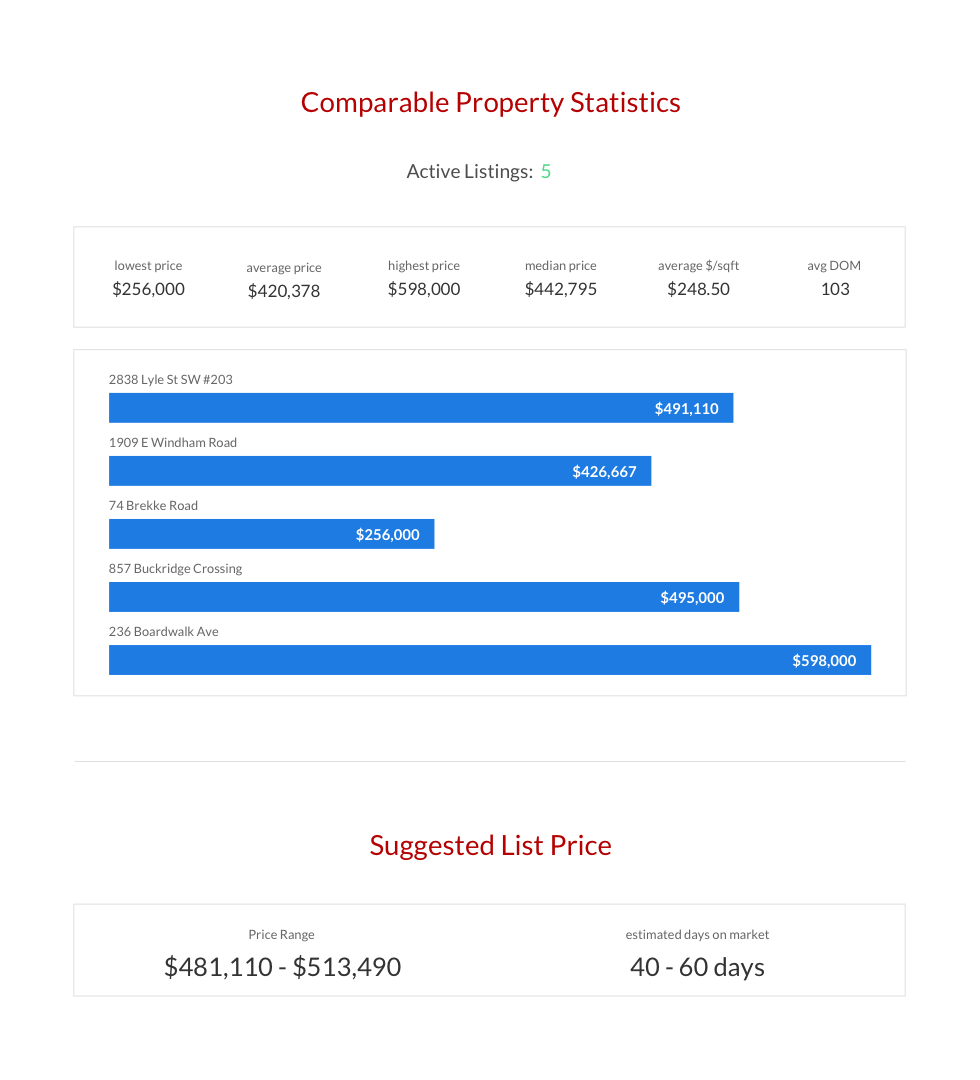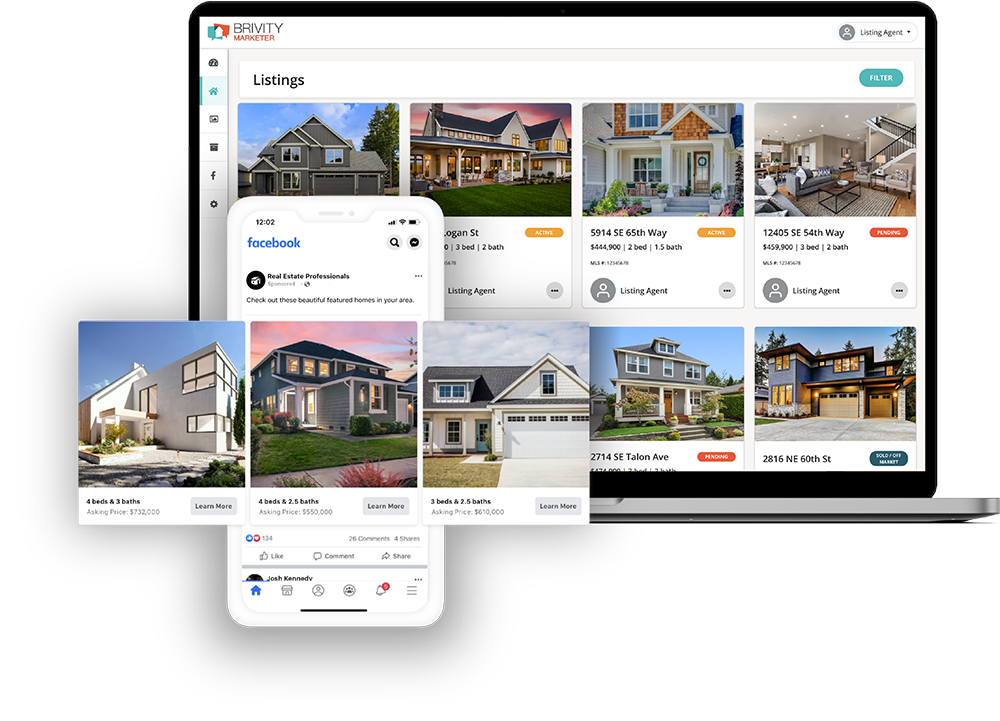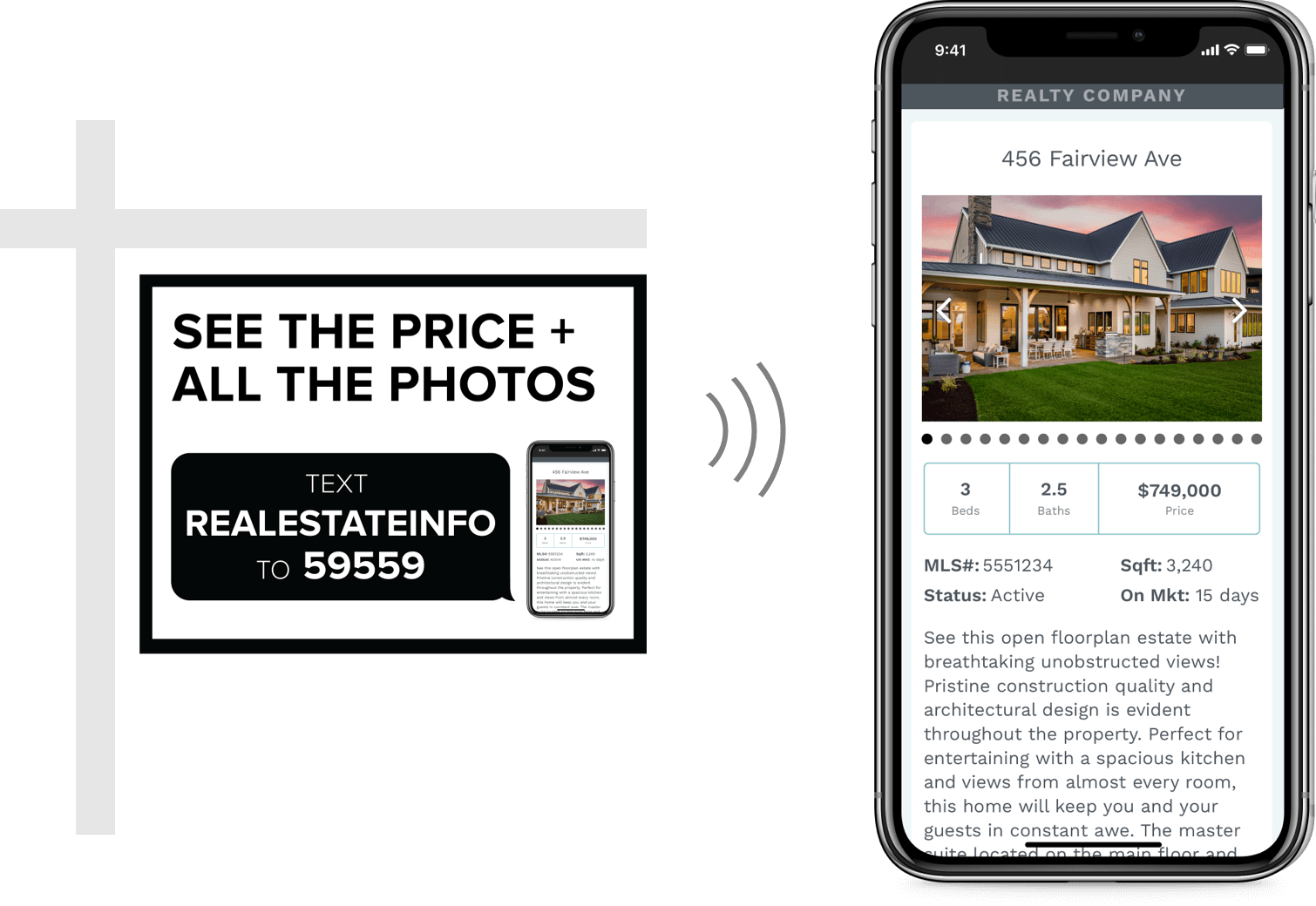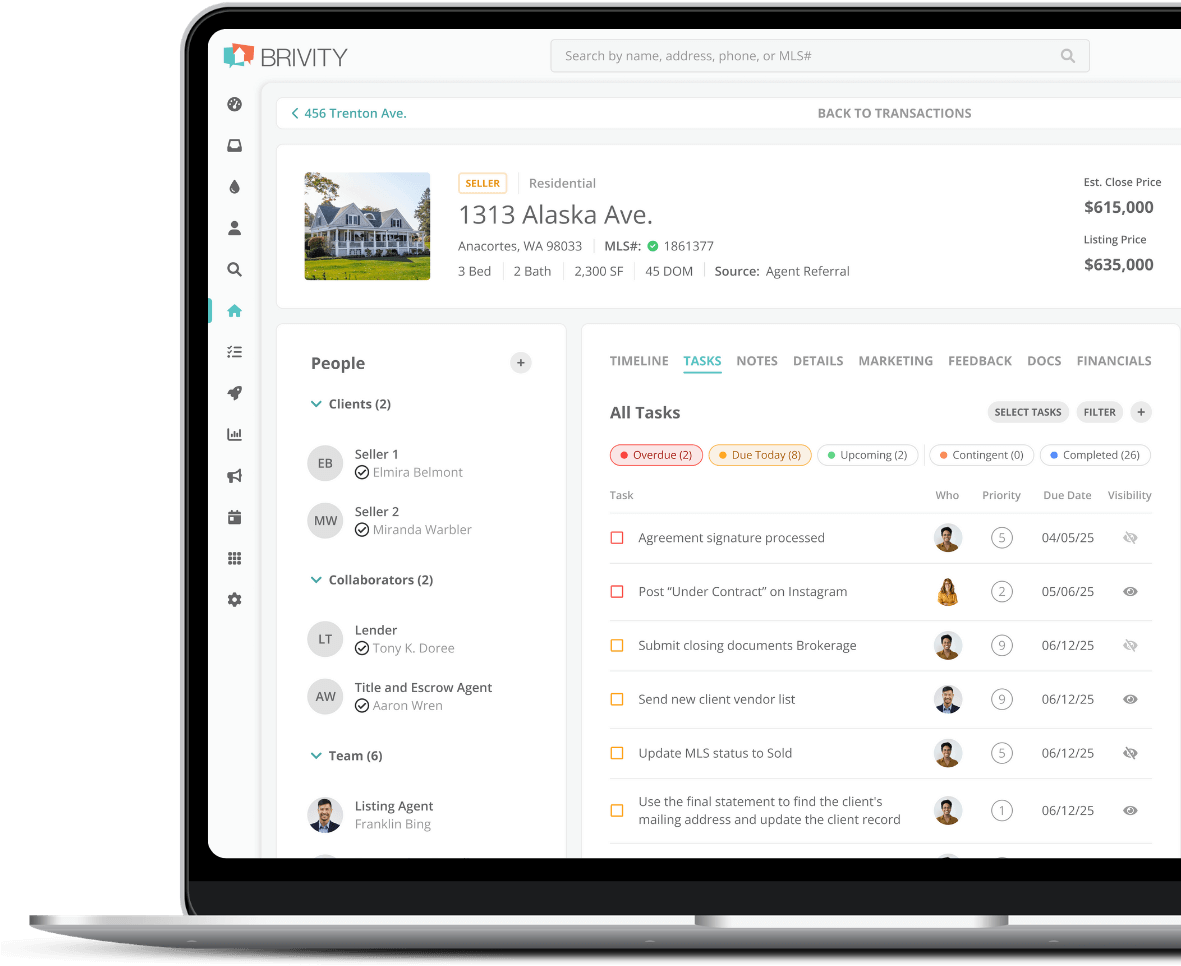Helping You Sell Your Home
Thinking About Selling Your Home?
We are experts in the local market and will guide you through the entire process of selling your property from listing to sale. Our marketing plans assure your property maximum exposure and we pride ourselves on personal service. We encourage you to contact our office with your questions and to discuss your individual needs.
Disclosure
In most states, it is the seller, but obligations to disclose information about a property vary. Under the strictest laws, you and your agent, if you have one, are required to disclose all facts materially affecting the value or desirability of the property which are known or accessible only to you. This might include: homeowners association dues; whether or not work done on the house meets local building codes and permits requirements; the presence of any neighborhood nuisances or noises which a prospective buyer might not notice, such as a dog that barks every night or poor TV reception; any death within three years on the property; and any restrictions on the use of the property, such as zoning ordinances or association rules. It is wise to check your state’s disclosure rules prior to a home purchase.
Most purchase offers include two standard contingencies: a financing contingency, which makes the sale dependent on the buyers’ ability to obtain a loan commitment from a lender, and an inspection contingency, which allows buyers to have professionals inspect the property to their satisfaction. As a buyer, you could forfeit your deposit under certain circumstances, such as backing out of the deal for a reason not stipulated in the contract. The purchase contract must include the sellers responsibilities, such things as passing clear title, maintaining the property in its present condition until closing and making any agreed-upon repairs to the property.
In some states, you do need an attorney to complete a real estate transaction, but in others you do not. Most home buyers are capable of handling routine real estate purchase contracts as long as they make certain they read the fine print and understand all the terms of the contract. In particular, you should be clear on the terms of any contingency clauses that will allow them to back out of the contract. If you have any questions at all, it may be advisable to consult an attorney to avoid future legal hassles. In looking for an attorney, ask friends for recommendations or ask your real estate agent to recommend several. Call to inquire about fees and to check on their experience. In general, more experienced attorneys will cost more, but real estate fees as a rule are small relative to the cost of the property you are buying.
Clean the windows and make sure the paint is not chipped or flaking.
Be sure that the doorbell works.
Clean and freshen up rooms, furnishings, floors, walls and ceilings. Make sure that bathrooms and kitchens are spotless.
Organize closets.
Make sure the basic appliances and fixtures work. Replace leaky faucets and frayed cords.
Eliminate the source of any bad smells, such as the kitty box. Use air freshener or bake a batch of cookies before your open house to ensure that the house smells inviting.
Invest in a couple of vases of fresh flowers to place around the house.
Negotiating
The more you know about a seller’s motivation, the stronger a negotiating position you are in. For example, seller who must move quickly due to a job transfer may be amenable to a lower price with a speedy escrow. Other so-called “motivated sellers” include people going through a divorce or who have already purchased another home. Remember, that the listing price is what the seller would like to receive but is not necessarily what they will settle for. Before making an offer, check the recent sales prices of comparable homes in the neighborhood to see how the seller’s asking price stacks up.
Some experts discourage making deliberate low-ball offers. While such an offer can be presented, it can also sour the sale and discourage the seller from negotiating at all.
Sellers are not legally obligated to disclose the terms of other offers to prospective buyers.
First and foremost, put it in the best condition possible, especially if you are in a market with few buyers and lots of homes for sale. That means taking care of any major repairs that could deter a buyer (such as replacing any broken windows or replacing a leaky roof) if you can afford it. Next, work on your home’s curb appeal. Make sure your landscape is pristine. Mow the grass, clean up any debris and weed the garden beds. Plant a few annual flowers near the entrance or in pots to be placed by the door. Other quick fixes that don’t cost a lot of money but can help you get top dollar for your home:
Clean the windows and make sure the paint is not chipped or flaking.
Be sure that the doorbell works.
Clean and freshen up rooms, furnishings, floors, walls and ceilings. Make sure that bathrooms and kitchens are spotless.
Organize closets.
Make sure the basic appliances and fixtures work. Replace leaky faucets and frayed cords.
Eliminate the source of any bad smells, such as the kitty box. Use air freshener or bake a batch of cookies before your open house to ensure that the house smells inviting.
Invest in a couple of vases of fresh flowers to place around the house.
Pricing to Sell
The list price is how much a house is advertised for and is usually only an estimate of what a seller would like to get for the property. The sales price is the amount a property actually sells for. It may be the same as the listing price, or higher or lower, depending on how accurately the property was originally priced and on market conditions. If you are a seller, you may need to adjust the listing price if there have been no offers within the first few months of the property’s listing period.
Price and condition are the two most important factors in selling a home, even in a down market. The first step is to price your home correctly. Use comparative sales information from your agent, or pay for a professional appraiser (usually $200 to $300), to objectively evaluate your home’s worth. Second, go through the house and repair any obvious cosmetic defects that could deter a buyer. In a down market, you may have to consider lowering your price and/or making a major repair, such as replacing the roof, in order to lure a buyer. Also, make sure that your home is getting the exposure it deserves through open houses, broker open houses, advertising, good signage and a listing on the local multiple listing service or online listings provider. If this isn’t happening, take it up with your agent or agent’s broker. If you are still not satisfied you are getting the service you need, you may have to switch agents.
Because many buyers prefer to move in the spring or summer, the market starts to heat up as early as February. Families with children are eager to buy so they can move during summer vacation, before the new school year begins. The market slows down in late summer before picking up again briefly in the fall. November and December have traditionally been slow months, although some astute buyers look for bargains during this period.
Property Taxes
Contact your local tax assessor’s office to see what procedures to follow to appeal your property tax assessment. You may be able to appeal your assessment informally. Mostly likely, however, you will have to go through a formal tax-appeal processes, which begin with an appeal filed with the appropriate assessment appeals board.
You have several ways to determine the value of a home. An appraisal is a professional estimate of a property’s market value, based on recent sales of comparable properties, location, square footage and construction quality. This service varies in cost depending on the price of the home. On average, an appraisal costs about $300 for a $250,000 house. A comparative market analysis is an informal estimate of market value performed by a real estate agent based on similar sales and property attributes. Most agents offer free analyses in the hopes of winning your business. You also can get a comparable sales report for a fee from private companies that specialize in real estate data or find comparable sales information available on various real estate Internet sites.
Mortgage interest and property taxes are deductible on a second home if you itemize. Check with your accountant or tax adviser for specifics.
Common Q&A About Selling Your Home
The more you know about a seller’s motivation, the stronger a negotiating position you are in. For example, seller who must move quickly due to a job transfer may be amenable to a lower price with a speedy escrow. Other so-called “motivated sellers” include people going through a divorce or who have already purchased another home. Remember, that the listing price is what the seller would like to receive but is not necessarily what they will settle for. Before making an offer, check the recent sales prices of comparable homes in the neighborhood to see how the seller’s asking price stacks up.
Some experts discourage making deliberate low-ball offers. While such an offer can be presented, it can also sour the sale and discourage the seller from negotiating at all.
Sellers are not legally obligated to disclose the terms of other offers to prospective buyers.
First and foremost, put it in the best condition possible, especially if you are in a market with few buyers and lots of homes for sale. That means taking care of any major repairs that could deter a buyer (such as replacing any broken windows or replacing a leaky roof) if you can afford it. Next, work on your home’s curb appeal. Make sure your landscape is pristine. Mow the grass, clean up any debris and weed the garden beds. Plant a few annual flowers near the entrance or in pots to be placed by the door. Other quick fixes that don’t cost a lot of money but can help you get top dollar for your home:
Clean the windows and make sure the paint is not chipped or flaking.
Be sure that the doorbell works.
Clean and freshen up rooms, furnishings, floors, walls and ceilings. Make sure that bathrooms and kitchens are spotless.
Organize closets.
Make sure the basic appliances and fixtures work. Replace leaky faucets and frayed cords.
Eliminate the source of any bad smells, such as the kitty box. Use air freshener or bake a batch of cookies before your open house to ensure that the house smells inviting.
Invest in a couple of vases of fresh flowers to place around the house
Consider these questions before making a choice between adding on to an existing home or moving up in the market to a bigger house:
-
How much money is available, either from cash reserves or through a home improvement loan, to remodel the current house?
-
How much additional space is required? Would the foundation support a second floor or does the lot have room to expand on the ground level?
-
What do local zoning and building ordinances permit?
-
How much equity already exists in the property?
-
Are there affordable properties for sale that would satisfy housing needs?
Ultimately, the decision should be based on individual needs, the extent of work involved and what will add the most value.
If you find yourself stumbling over weird acronyms in a real estate listing, don’t be alarmed. There is method to the madness of this shorthand (which is mostly adopted by sellers to save money in advertising charges). Here are some abbreviations and the meaning of each, taken from a recent newspaper classified section:
-
assum. fin. — assumable financing
-
dk — deck
-
gar — garage (garden is usually abbreviated “gard”)
-
expansion pot’l — may be extra space on the lot, or possibly vertical potential for a top floor or room addition. Verify actual potential by checking local zoning restrictions prior to purchase.
-
fab pentrm — fabulous pentroom, a room on top, underneath the roof, that sometimes has views
-
* FDR — formal dining room (not the former president)
-
frplc, fplc, FP — fireplace
-
grmet kit — gourmet kitchen
-
HDW, HWF, Hdwd — hardwood floors
-
hi ceils — high ceilings
-
In-law potential — potential for a separate apartment. Sometimes, local zoning codes restrict rentals of such units so be sure the conversion is legal first.
-
large E-2 plan — this is one of several floor plans available in a specific building
-
lsd pkg. — leased parking area, may come with an additional cost
-
lo dues — find out just how low these homeowner’s dues are, and in comparison to what?
-
nr bst schls — near the best schools
-
pvt — private
-
pwdr rm — powder room, or half-bath
-
upr- upper floor
-
vw, vu, vws, vus — view(s)
-
Wow! — better check this one out.
Resources:
“Real Estate’s Ambiguous Language You Oughtta Understand,” Glennon H. Neubauer, Ethos Group Publishing, Diamond Bar, CA; 1993.
Bankruptcies and foreclosures can remain on a credit report for seven to 10 years. Some lenders will consider a borrower earlier if they have reestablished good credit. The circumstances surrounding the bankruptcy can also influence a lender’s decision. For example, if you went through a bankruptcy because your employer had financial difficulties, a lender may be more sympathetic. If, however, you went through bankruptcy because you overextended personal credit lines and lived beyond your means, the lender probably will be less inclined to be flexible.
Understanding What Makes Your Home Sell
How it's priced, how it shows, and how it's marketed
Selling your property is a big decision so it's critical to work with a trustworthy professional who will get the job done right.
Feel confident that you are working with someone who uses the best tools and technology to sell your property for the most amount of money in the least amount of time. Rest assured that the selling process will be managed with transparency and constant communication, knowing every detail will be taken care of.
Your property will be marketed using strategies that target where buyers are actively searching, both online and in person. Your listing will stand out with captivating photography, compelling content, and a flawless presentation to impress buyers both online and in person.
The Selling Process
Let's meet and talk about your selling goals
By gathering a clear understanding of your goals and learning the details of the selling process, you’ll know what to anticipate. Using comparable property data determines the optimal list price and projected time on the market. Innovative technology is used to market your listing and manage the entire transaction, guaranteeing every detail and question is addressed. And, you’ll receive updates through every step of the process so you are fully informed about the progress of your home sale.
Request a Call
The Pricing Strategy
Use the most accurate methods to price your home
The right price for your property is determined by current market conditions, not by an agent, seller, or buyer. Using up-to-date market data to compare your property to 5 active, 5 pending, and 5 recently sold properties combined with in-depth knowledge of market statistics ensures your property is priced and marketed correctly so it sells when you want for the price you deserve.
Get your instant home value now
See Your Home Value
Making Your Listing Shine
The best photography, virtual tours, 3D walkthroughs and videos
Today's home buyers have access to more information than ever. They know which homes they want to see and have already rejected listings with too few or subpar photos. It is absolutely vital that your online listing includes high-impact photography to make lasting first impressions and compel buyers to schedule showings.
Creating a virtual tour or 3D walkthrough allows potential buyers to see more than photos, providing an immersive experience that showcases the full layout of the property right from the comfort of their device. Virtual tours are a key element of a comprehensive and successful home sale strategy.

Innovative Internet Marketing
92% of buyers search for properties online
The best strategies and resources market your property where buyers are looking. The more buyers who see your property, the faster it sells. Your property will be marketed across multiple channels, including agent websites (this one included), popular home search portals, search engines, and social media platforms. This multi-faceted approach and extensive exposure will move your listing from active to sold in the least amount of time.
Schedule an appointment
For Sale Signage, Done Right
Reaching buyers offline
Buyers still find homes by driving through the neighborhoods they love. Our For Sale signs feature a unique keyword that buyers can text to instantly get your listings details sent directly to their phones. This also gathers their contact information to follow up with them immediately and schedule a showing.

Utilizing the Most Powerful Real Estate Technology – Brivity
Real-time updates throughout the selling process
Transparency and constant communication will never leave you wondering what work is being done to find a buyer for your property. Brivity is the most powerful and innovative real estate marketing tool that automatically keeps you informed at every stage of the process. In a competitive market, this ensures you’ll never miss a detail on the sale of your property.

.png)



